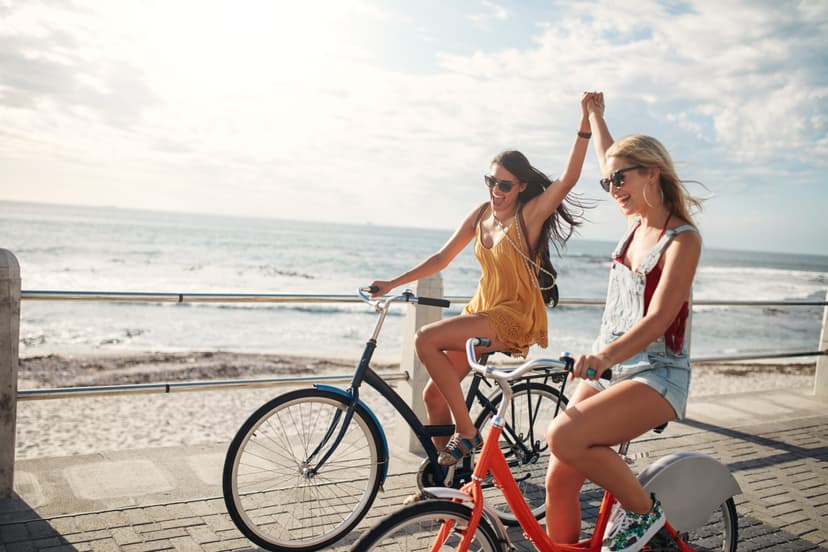Ferdinand Martinet is an adventurer at heart. He founded Chilowé to introduce new ways of travelling via escapades that are rich with meaning.
Q: How did get the idea to launch a responsible travel agency?
A: The name Chilowé – pronounced “chill away” – is like an invitation to escape into nature. We started four years ago as a media outlet. Our mission was to inspire our community to spend more time in nature, close to home, without having to go on a crazy three- or four-week adventure all the way across the world.
Q: In terms of the green travel industry, what trends are you seeing?
A: The trend I see most is this need to get away more often, because we all have very connected lifestyles. There is a need to disconnect quickly and frequently. The micro-adventure concept – inserting short getaways into our hyper-connected, hyper-overworked lives – thus becomes an interesting solution. For some people, that means a monthly trip, while others do it every weekend. It’s all about packing in a short nature interlude with a bit of hiking, or by staying in unusual accommodations, like a refuge. And there is also the community aspect, the desire to travel with other like-minded people.
Q: With the borders reopening post-pandemic, France has been putting its night trains back into circulation. What do you see as the next step, perhaps outside France?
A: All things bike travel. There’s been an explosion in the bikepacking trend. People leave home for a few days and go to another city, another region, or a destination. In the end, the journey is not the destination, but the way to get there. There are also people who take the train with their bike and come back by bike, or take the train to go cycling in Italy, Switzerland, Spain. I think there is a fundamental trend towards biking, hiking, doing things with just your legs. There is a spirit of wandering, of pilgrimage, that’s becoming more and more prevalent.
Q: How do you convince travelers to choose green travel over traditional travel?
A: I think it just happens by itself. Our job is to ride the wave and follow the aspirations of our community. It is necessary to decipher the trends, the activities that work and then to offer the right things. We try to do two things: first, we try to make the regions of France as sexy as Costa Rica, and that’s a marketing effort. The second thing is to make booking as easy as possible. Going on a micro-adventure should be as easy as booking an Airbnb in Barcelona. And that’s what we did: you go to the Chilowé website, you enter your dates, you choose a micro-adventure, you book, and you’re done.
Q: Do you plan to extend your offer to other European destinations?
A: We already are! We’re offering micro-adventures in Italy, Spain, Switzerland, Belgium, and eventually in Catalonia. We draw the line at air travel, essentially. If you can get there by car, or, ideally, by train, we will offer it, because there are magnificent things to see just next door.
Q: Would the next step be to institute your own label?
A: The Chilowé brand is fated to evolve into more of a marketplace model, whereby people will be able to offer stays on our platform. We will try to increase the number of opportunities to get away and travel. But why would guides, small agencies or organizations want to be on Chilowé? Because the label is cool, the community of people who are going to sign up is cool, the values are cool.
Q: What’s your stance on longer trips? Do you see it as the best compromise between air travel and environmental responsibility?
A: Our plan is to expand our offerings towards permaculture, farming, meditation, fasting. Our micro-adventure idea is about being local and close to home. Now, if you ask me, yes, the idea is to get away more often, but closer – and go to the other side of the world less often. I think it’s a mix between short trips two or three times a year and a long trip once every two years.



